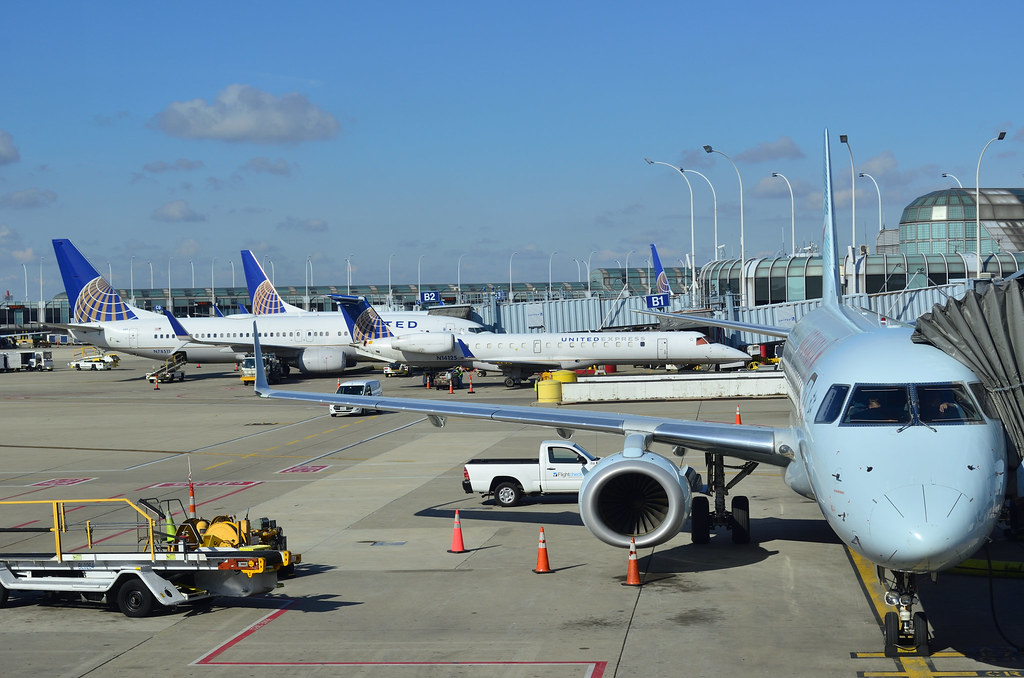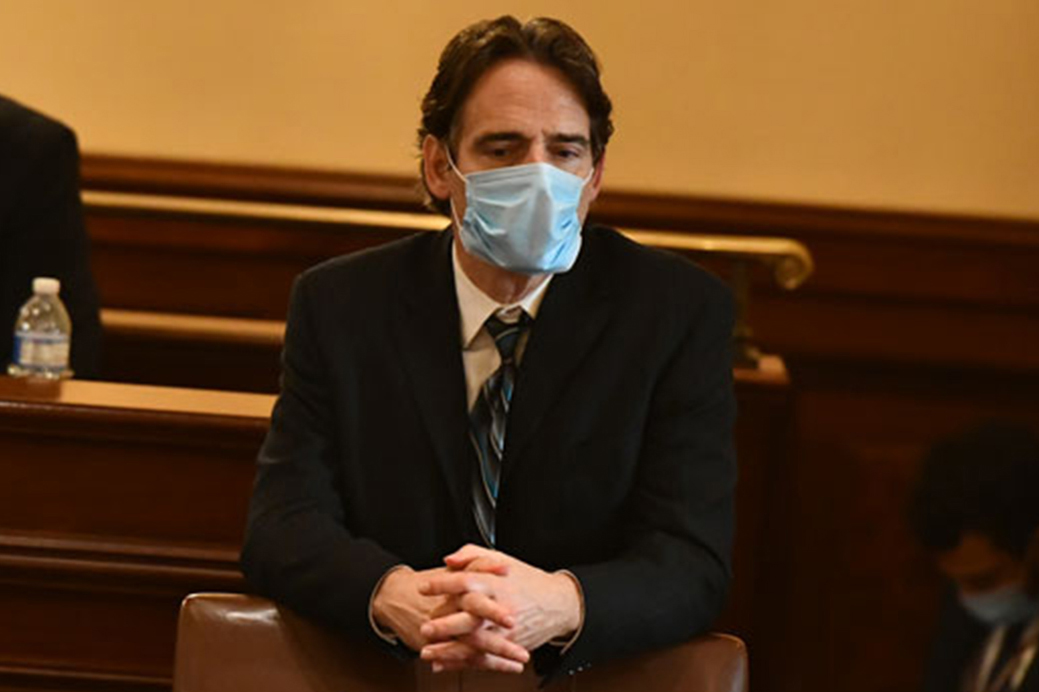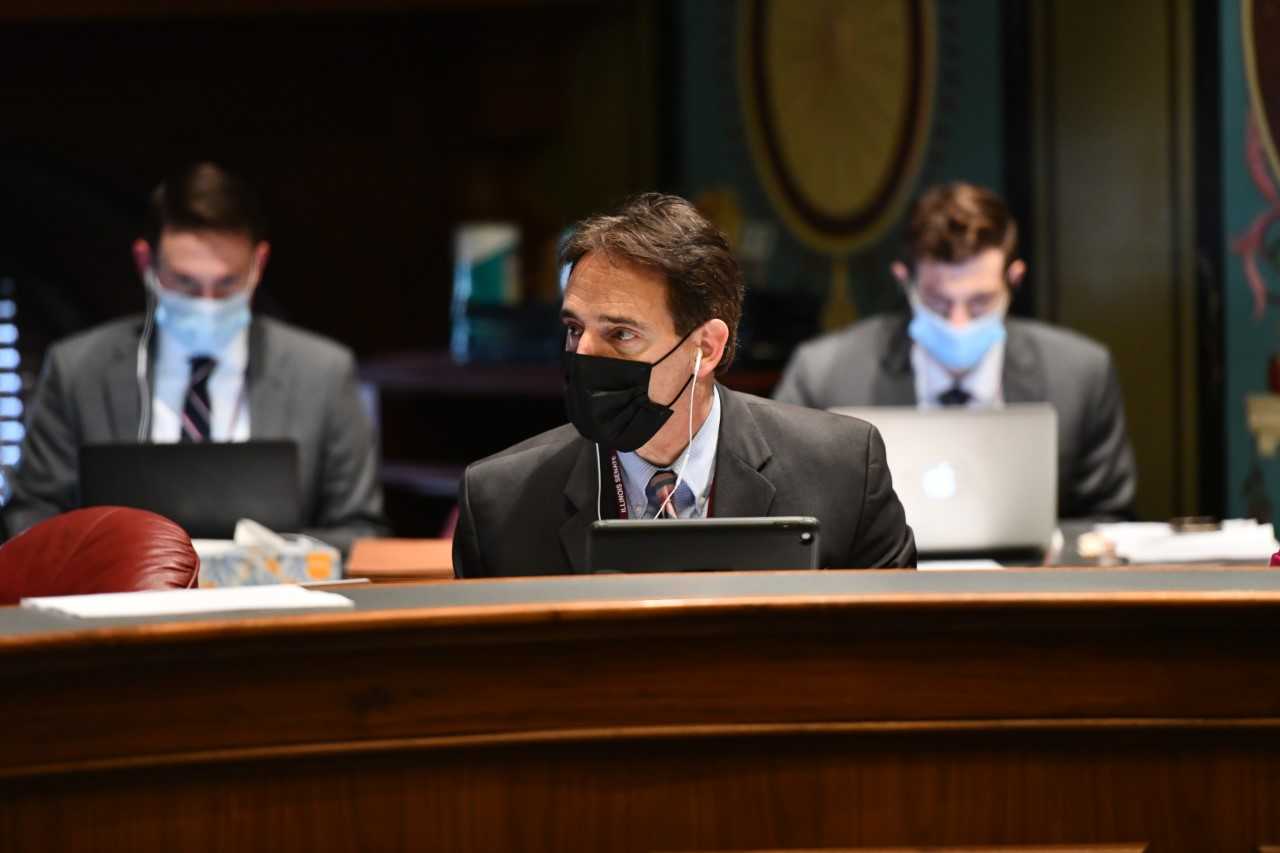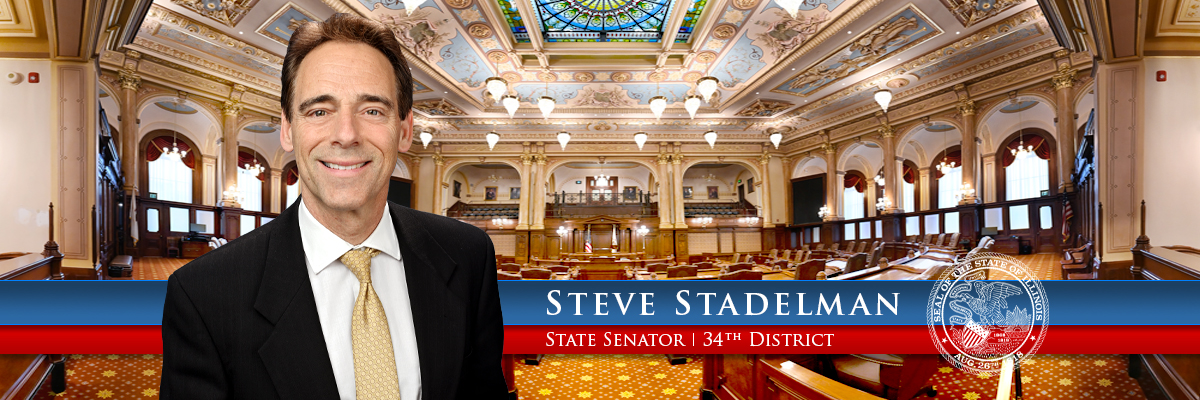- Details
- Category: Press Releases

ROCKFORD -- State Senator Steve Stadelman praised today's announcement that 250 more jobs in jet maintenance are coming to the Chicago Rockford International Airport as yet another positive return on public investment.
Illinois-based AAR Corp. disclosed an agreement with United Airlines to use the airport's Maintenance, Repair and Overhaul facility to service United aircraft, including its Boeing 737 fleet, through 2025. The contract is expected to result in 250 new technician jobs.
"Today's announcement represents a welcome return on public investment in our airport and underscores the importance of the aerospace industry in growing Rockford's economy," Stadelman said from Springfield, where the Illinois General Assembly is in the final weeks of its spring legislative session.
Stadelman was instrumental in securing $15 million in state funds for construction of the MRO, money that had been promised to the project but that failed to materialize during the previous governor's administration.
"Our airport has benefitted from support across all levels of government, and that cooperation must continue," Stadelman said. "I'm pleased that the state kept its commitment to the MRO and that the commitment continues to pay off."
AAR, which works with Rock Valley College and the Workforce Connection to provide training in aviation technology, already employs 200 workers at the MRO, which opened in 2016.
- Details
- Category: Press Releases

SPRINGFIELD – A measure sponsored by State Senator Steve Stadelman (D-Rockford) that would make civil no contact orders permanent for sexual assault survivors whose assailants are criminally convicted of sexual assault passed the State Senate Friday.
“People who’ve been through a sexual assault will live with the trauma for the rest of their lives,” Stadelman said. “I believe it’s our responsibly to help ease their burdens and not make them relive that trauma by forcing them to return to court year after year.”
Currently, under Illinois state law, sexual assault survivors are forced to see their assailants in court every two years to renew their no contact orders.
“These no contact orders are based on convictions. Convictions don’t change over time,” Stadelman said. “Survivors deserve the right to feel safe in their daily lives without having to continually go to court.”
Stadelman worked on the measure with the City of Rockford’s Office of Domestic Violence Prevention. Additionally, the city worked with Rockford Sexual Assault Counseling, which suggested the lifetime order of protection. Similar protections are already in place in Illinois for stalking victims.
Senate Bill 2277 passed the Illinois Senate without opposition and now heads to the Illinois House of Representatives for further consideration.
- Details
- Category: Press Releases

SPRINGFIELD – A measure sponsored by State Senator Steve Stadelman (D-Rockford) that pushes to ensure local journalism survives in Illinois’ small towns and mid-sized cities passed the State Senate on Thursday.
“I’ve dedicated years of my life to journalism, so I understand the importance of having access to local news,” Stadelman said. “Illinoisans deserve to know what’s happening in their communities, regardless of where they live.”
The measure would create the Local Journalism Task Force, which would be made up of 10 individuals representing print and broadcast media, journalism schools, and state and local government. They would be charged with conducting a study on communities underserved by local journalism and making recommendations on how to preserve and restore news coverage in these areas.
Declines in advertising revenue and circulation have meant that nearly half of the newsroom jobs at newspapers that existed in 2004 have since disappeared—and more than 2,000 papers around the country have closed over the past 15 years.
If signed into law, the task force would be required to submit the findings from its study to the governor’s office and the General Assembly no later than Jan. 1, 2023.
“Whether you live in Rockford, Rochelle, or Chicago, you need to know what’s going on in your community,” Stadelman said. “I hope this legislation will provide new ideas to help address dwindling press coverage throughout Illinois.”
Senate Bill 134 passed the Illinois Senate with a vote of 57-0 and will now go to the Illinois House of Representatives for further consideration.
- Details
- Category: Press Releases

SPRINGFIELD – A measure sponsored by State Senator Steve Stadelman (D-Rockford) that would help cities and counties address blighted properties passed committee on Wednesday.
“Blighted properties don’t just affect one or two neighbors. They can have a ripple effect on an entire block,” Stadelman said. “Giving our cities and counties the tools they need to fight this problem is the first step to revitalizing our neighborhoods.”
• The measure would reduce abandoned and neglected homes by helping municipalities intervene earlier through the court system to save these properties.
• It allows municipalities and counties to partner with land banks to maintain and manage vacant buildings so they can be saved.
• The measure would help people stay in their homes by reducing the cap on interest rates on unpaid property taxes.
“Sen. Stadelman recognizes the impact that blighted properties have in Rockford, and I appreciate all of his work in Springfield to help mitigate this issue,” said Rockford Mayor Tom McNamara. “Blighted properties decrease home values, drive away investment, and are havens for criminal activity. This bill makes it easier for municipalities to intercept dilapidated properties before they are beyond repair so that they can be rehabilitated and placed back on the tax rolls. My administration has taken aggressive action to strengthen our neighborhoods, and this bill we be a tremendous tool that can help the city in this work.”
“When you have abandoned and deteriorating homes, it’s often local governments that pay to maintain or demolish these properties,” Stadelman said. “This measure finds solutions to help our state better address neighborhood rehabilitation.”
Senate Bill 1721 passed the Senate Revenue Committee with a vote of 6-4 and now heads to the Senate floor for further consideration.
More Articles …
Page 56 of 112




